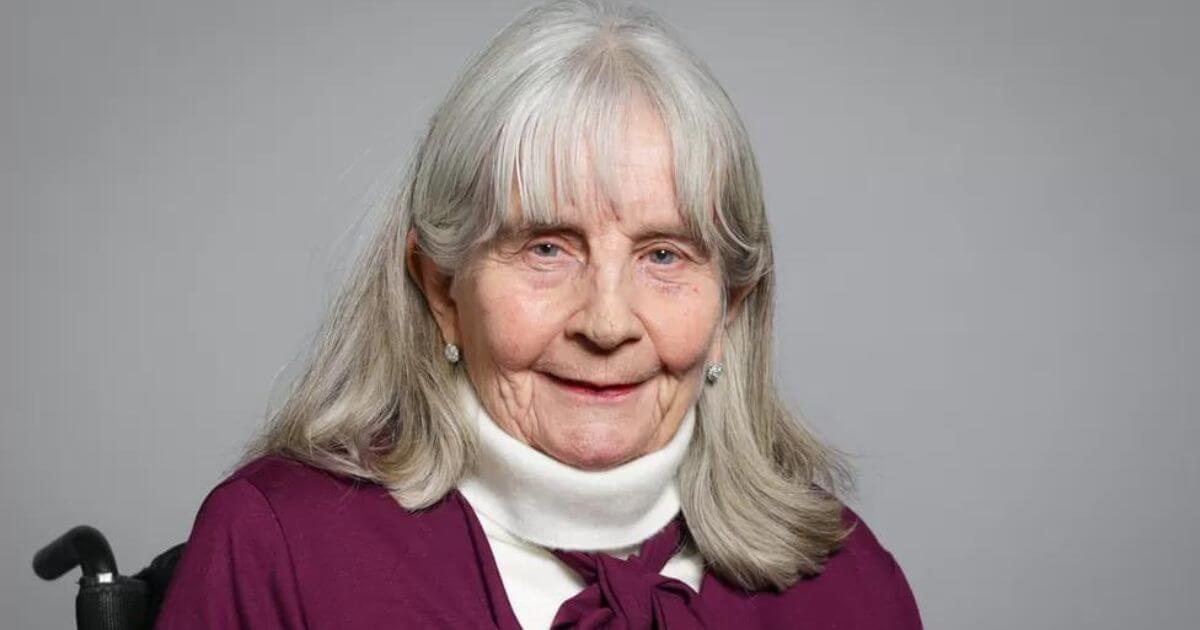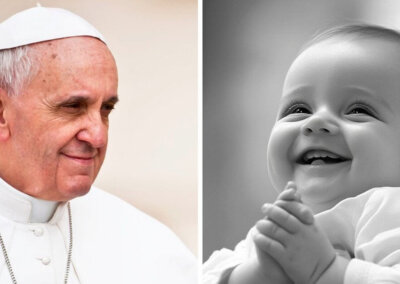Paralympian and pro-life veteran, Baroness Masham, who campaigned to end disability-selective abortion, and who was the longest-serving female member of the House of Lords ever, has died.
Susan Cunliffe-Lister, Countess of Swinton, Baroness Masham of Ilton passed away on Sunday, aged 87. The Baroness was known for her activism in favour of people with disabilities and especially unborn babies with disabilities, whom she tried to protect from discriminatory abortion practices.
After suffering a spinal injury in 1958, she went on to compete in the Paralympic games, winning the gold medal in the 25m breaststroke in 1960, and the gold medal in the women’s doubles table tennis in the Tokyo Paralympics in 1964.
She was made a peer in the House of Lords in 1970.
Colleague and friend of the Baroness, Lord Alton said that “[o]n one occasion, not long after I first got to know Sue, her wheelchair became trapped in the doors or one of the lifts in Parliament and her legs became trapped and were broken. She spent weeks in hospital. Characteristically, she uttered not one word of self-pity – her fortitude and courage putting most of us to shame”.
Pro-life to the core
Throughout her time in Parliament, she became known as a fierce defender of unborn babies. In 2007 she tabled an amendment to the Human Fertilisation and Embryology Bill in an attempt to prevent the late-term abortion of babies with disabilities. The amendment ultimately failed in 2008.
She described the law, which permits abortion up until birth for unborn babies with disabilities, as “discrimination of the worst sort”.
She asked the Lords “How can it be… that babies are allowed to go full term and then be given a lethal injection and killed just because they are still inside the womb and may have a handicap?”.
She went on “So much has been talked about the welfare of the child. I must try to persuade some of your Lordships that the welfare of the living baby within the mother’s womb should also be considered and protected.”
In a separate debate on the same issue, she said “As someone who has sought to defend disability rights and promote disability awareness, I can think of no greater affront to equal opportunities for those who are disabled than the denial of the right to life itself.”
In 2013, Baroness Masham was on the commission of the Parliamentary Inquiry into Abortion on the Grounds of Disability, which recommended that abortion should not be legal up to birth in cases of disability. The Inquiry found that the “vast majority of those who gave written evidence believe that allowing abortion up to birth on the grounds of disability is discriminatory, contrary to the spirit of the Equality Act, and does affect wider public attitudes towards discrimination”.
Baroness Masham “was one of the most inspirational people I have ever met.”
More recently, in the 2020 debate surrounding the Government in Westminster’s decision to force abortion on Northern Ireland, she described her experience of adopting two babies in need of protection. She then said “I feel the need to protect the unborn child. The regulations allow abortion up to birth for babies with disabilities but limit it to 24 weeks for non-disabled children. Many people are dismayed and horrified by this discrimination”.
Baroness Masham also asked the government pointed questions about the discrimination against unborn babies with disabilities.
Long-term colleague and ally of Baroness Masham, Lord Alton said that she “was one of the most inspirational people I have ever met… She was extraordinarily kind and considerate of other people”.
“She was passionate about the rights of babies in the womb and equally passionate in her opposition to euthanasia.”
“When opposing abortion up to birth for babies with disabilities she insisted that it shouldn’t be a disqualification from life and that disabled people should not be ‘dehumanised’. As a Paralympian athlete, as President of the Spinal Injuries Association, and Patron of many charities, she knew that being pro-life meant caring for people at every stage of their life and doing practical things to affirm people regardless of ability or any other characteristic.”
He added “The longest serving woman Peer, she was a Crossbench life Peer for over fifty years and became ‘Mother of the House’ – widely respected and admired across the political divide. She continued to play an active part in House of Lords debates and work right up until a month before her death.”
“Her example should be a role model for a rising generation and her story of overcoming great adversity deserves to be better known. She will be greatly missed.”
Right To Life UK spokesperson Catherine Robinson said “Baroness Masham was a fierce and consistent defender of life from conception until natural death. She recognised that the lives of every human person, born and unborn, with or without a disability, mattered. She will not only be missed for her unwavering support but also in particular as a member of the All-Party Parliamentary Pro-Life Group.”











